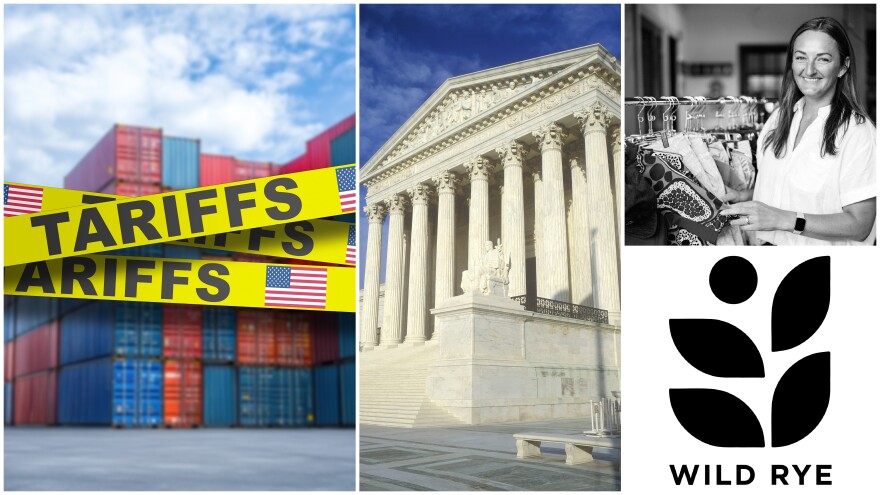When the U.S. Supreme Court this week took up the legality of President Trump’s sweeping global tariffs, it wasn’t just one of the biggest cases in recent memory before the high court; it was personal, particularly to Cassie Abel.
“We’ve paid almost $300,000 in tariffs,” said Abel. “That’s in addition to our baseline tariff. So, double that.”
Abel is founder and CEO of Ketchum, Idaho-based Wild Rye, which produces high performance outdoor apparel for women.
“We’re a team that is pretty much entirely women,” she added. “We build products that feature the function and style and performance that women are looking for when embarking on big adventures in the mountains.”
But geopolitics waylaid some of those adventures when President Trump, pointing to a 1977 emergency law for justification, began imposing tariffs on nations in practically every corner of the globe. And for an American business that depends on another global partner, those tariffs would become crippling.
She added that the tariffs climbed to nearly 200% before she could bring her products from a partner in China into the U.S. And this week, Abel was asked to share Wild Rye’s story in an amicus brief to the Supreme Court.
“I feel like everything this year has been a very big deal. It’s hard to register the magnitude of what this means,” she said. “Looking back, I can’t believe we’re a part of it … our tiny little ten person Idaho brand was represented at the Supreme Court.”
Abel joined Morning Edition host George Prentice to share her company’s story and talk about how national politics hit them like a “wrecking ball.”
Find reporter George Prentice @georgepren
Copyright 2025 Boise State Public Radio



